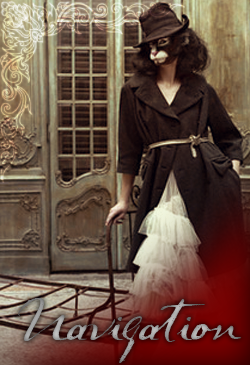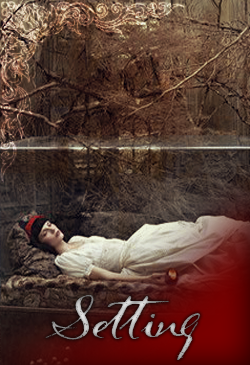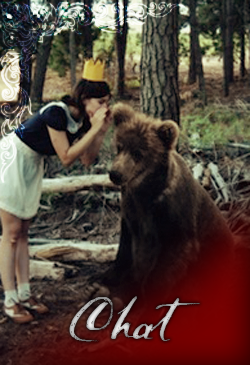Post by EDWARD PEARSON on Dec 29, 2011 18:14:06 GMT -5
...Edward James Pearson*
*Nevermore*
[/size]*Nevermore*


...basics*
name Edward James Pearson
nickname Ed, though he dislikes being called it.
age 21
gender Male
grade Senior at J Barrie University
hometown Oxford, England
sexuality Asexual, however not necessary a-romantic.
personification Unnamed protagonist in The Raven
status Mostly Dormant
face claimJames McAvoy
...appearance*
hair color His hair's dark brown, though occasionally the light will pick up lighter shades. Very infrequently it with have red hints.
eye color Light blue, almost grey. Some would say a little cold.
build Quite slight, he sometimes forgets to eat so he's wavering on the edge of underweight, yet he's never been too much in danger. He hates exercising; his P.E. teachers in school, paired with his natural ineptness, beat that out of him. When he goes home he tends to put on a fair bit of weight, and comes back quite a lot bigger than he left.
height Six foot one
clothing style Dark, simple and plain. Nothing to draw attention to himself. He'll occasionally choose beige or pale green. He always dresses to suit the weather; warm scarves and hats for the autumn and winter months, and short sleeve tops for the spring and summer. But never shorts. And no sandals.
distinctive traits He's got almost a permanent bit of stubble, due to him forgetting to shave due to being busy with working.
...personal*
personality
Edward has always been a quiet person, more inclined to spend his time around books than around people. Solitude suits him, and he enjoys being alone with his thoughts instead of having to listen to everyone else's. He does try his best not to feel disdain for people, however if someone is loud and shares their opinion when it's not asked for Edward tends to judge them long before he's really met them. As such, he doesn't get on well with outspoken people. However, the quieter sort, those who appreciate study and soft, whispered thoughts are very welcome to join him; he does occasionally appreciate the company.
Edward hates debate, even of the academic kind, and would much rather agree to disagree than have a difference of opinion. If somebody challenges him, he has a tendency to start ignoring them, delving deeper into whatever book or paper he's reading or writing about. However, he's not able to keep nearly so calm if someone starts to taunt him repeatedly. He'll slowly start to lose his temper, and eventually start shouting and screaming, before breaking down in tears of anger. This very rarely happens, in fact, it's only happened a few times, in his childhood, when people started to pick on him about his phobia.
Only his phobia can stop him from being the calm, silent type that he nearly always is. It can quicken his heart, his breathing and his thoughts. It can make him loud, shaky and panicky; the exact opposite of his normal personality. In such situations, he'd do anything to get away, even once punching someone in the face as they tried to stop him getting away. He always regrets this after he's calmed down, though this can take days until he stops being quite so on-edge, and often he'll return and apologise to whoever it was.
If caught when he's not busy, and if you were to observe him daydreaming before he noticed you, you would notice that he seems to have a lost look; as if he's longing for someone. He's often felt that he has lost what he was looking for long before he ever found it, and when left to his own devices the strength of his longing has occasionally brought him to tears. He's always put it down to losing his father at such a very young age, however there's always the small nagging feeling that that's not who he's lost at all. He's often thought about asking his mother whether he lost someone or something else when he was a child, however he's never got round to it, and probably never will for fear of upsetting her. Nevertheless, it's a feeling he's never been without, though of course he can be distracted from it.
past
His father was born in Oxfordshire, and spent all his life living just down the road from his parents. His mother was a scholar from America, who came over to Oxford as an older teen to study in the University there. They met as they frequented the same coffee shop, and, after brief glances over books and magazines at each other, finally started to talk, and the rest was history. His mother finished her degree in Classics, specialising in Greek classics, and they got married in the next two years. Six years later, a little baby boy was born, and she began to read him the Greek myths as his bedtime tales. She adored the small boy, the spitting image of his father, and very bright. They were a happy family, often going out on day trips to places of interest, the Ashmolean museum in Oxford being a particular favourite.
However, by the time they'd been together eleven years, when Edward was three, his father was diagnosed with ischemic heart disease, and within two years more suffered heart failure and died when Edward was just about five. He was too young to entirely know what was going on, and it wasn't until he was fifteen that he finally knew exactly what had happened. At five, he only knew that someone he loved very much was not there any more, and it made him more of a recluse, reluctant to play or talk to other. His mother decided to get him a therapist, a child psychologist, however it was dismissed merely as the signs of grief and she was told there was no need to bring him back. She and her boy grew closer and closer, and she had high hopes for him and for his happiness, at least until the fear developed.
They call it Ornithophobia. An, "abnormal, irrational fear of birds." Edward hasn't always suffered from it; until he was six, he was perfectly fine. His grandparents had budgies in a cage in the kitchen, and he would often ask to see them, and let them sit on his finger as he stroked their plumage. However, on January the twenty-ninth, not long before his birthday on February the fourth, he suddenly grew afraid of them, and indeed of all birds. The experience was traumatising, for him, his parents and also his grandparents. Of course, they didn't know it was the first sign of his "awakening," a process which would take a long time to complete. From then on, the budgies were kept in the spare room during his visits, trips to the park to feed the ducks were cancelled, and his mother returned to the psychiatrist. Yet again, it was classed as a delayed symptom of grief, and she was sent away with the assurance that the boy would grow out of it.
He was a clever child, clever enough to not mention this at school, however a demonstration of Owling that the school organised when he was eleven was enough to make it plain and clear that he was terrified. By lunchtime that day the largest boys in his year had found where he'd been hiding, and started to taunt and tease him. Slowly, as his anger and desperation rose, he broke down into screaming, starting to hit the others mindlessly. This got him suspended for a week, for not being able to hold his temper, and, with his SATs done and him being the right age for secondary school, and with his American relatives offering to house both him and his mother, they moved over and he started his secondary schooling in America.
He hid it better this time; he'd already experienced what could happen if he let it slip. He proved to do particularly well in school. He studied hard, his teachers often said he worked far too much, as his social life was lacking and his complexion was a terribly pale colour. He didn't much care, the people of his age were too noisy, too loud. Eventually, he was offered a chance to learn Latin, and snapped it up despite the fact it wasn't Ancient Greek, where his passion lay. With such academic levels, he moved on to study Classics, working his way through it with flying colours.
present
As he had grown, he grew restless, wanting to leave the house he'd spent his teenage years. His cousins were, as so many of his school friends, loud and outspoken; he didn't fit in at all. After much deliberation, he ended up in New York. It wasn't at all his favourite or first choice, however he does appreciate the ability to go unnoticed and unseen in amoungst the crowd. It allows him to sink away and be left with his own mind, a safe haven, with only his own thoughts to keep him company.
He sends weekly letters back to his mother, reassuring her that yes, he is safe, and yes, he has enough socks. She sends back letters, informing him about how things are with all his cousins and aunts and such, things he didn't really care about at all. Despite all this, he reads them out of pure courtesy, and replies congratulating Sammy on his sports scores, and Emily's part in the school play. Very occasionally, he hears from his grandparents back in England, who send him biscuits and cake that he nibbles on as he worked. He likes his paternal grandparents, and feels much closer to them than he does to his relatives in this country, and makes a point to visit them once a year, often staying for two weeks, when he's not studying them, of course.
family
PARENTS AND SIBLINGS
David: Father - Deceased - Builder
Martha: Mother - 52 - Lecturer at a local University
James: Grandfather - 74 - Retired
Mary: Grandmother - 71 - Retired
Sammy: Cousin - 15 - Student
Emily: Cousin - 8 - Student
Jane: Aunt - 40 - Secretary
Bill: Uncle - 45 - Film Crew worker
likes
Reading
Writing academically
Libraries
Warm, woolen clothing
His mother
His grandparents
dislikes
Birds, specifically ravens & crows
Loud, outspoken people
Arguments
Too hot weather
Parties
Drunk people
other notes
...literature*
book title The Raven
backstory He's the main protagonist, a man who spends his time studying and longing for a lost love, Lenore. He's nearly asleep as he hears a tapping at his door, and yet opens it to find nothing there. He once again starts to nap as he hears a tapping at his window, and opens it only to have a raven fly in, taunting him with the word, "Nevermore."
Slowly, he starts to go slightly mad as he uses the Raven to answer questions he's been asking himself for a while, such as whether his darling Lenore lies in paradise. As the Raven continues to answer with only the word, "Nevermore," he loses his temper, screaming and shouting at the bird to leave, before starting to break down, with the Raven still watching. Always watching.
...roleplayer*
name Rufus
age 15
gender Male
rp experience Been roleplaying in various places for seven years now, mostly on boards, however for the past year I've mostly been Facebook roleplayer ( a risky and mildly illegal practice), but would like to get back into board roleplaying.
how you found ouac The current Neopets advert board.
rp sample (From a recent roleplay, a family Christmas plot)
He was late again, having worked without noticing what time it was, as he tended to do. It's not that he didn't /want/ to see his family; he missed them a huge deal when he was away in London, but he did tend to get carried away and forget to check what time it was exactly. Normally, he'd have been told by his secretary, but he'd had to leave her behind and as such was as disorganised as a school-child again.
He almost tripped as he waded through the snow-covered path, his arms laden with badly-wrapped presents for one and all. He loved giving presents, especially to his family. It was enough to see that, despite how little they saw or spoke to each other, he still knew them well enough to get them what they liked. It made him feel so much more involved with the family again, and not like an outsider as he felt for much of the rest of the year.
Balancing his presents on his shoulders and knees, he lightly knocked on the door, almost falling over backwards in the process. Settling himself and getting his balance back to normal, he waited with childish anticipation and joy to see his family again. (d)















